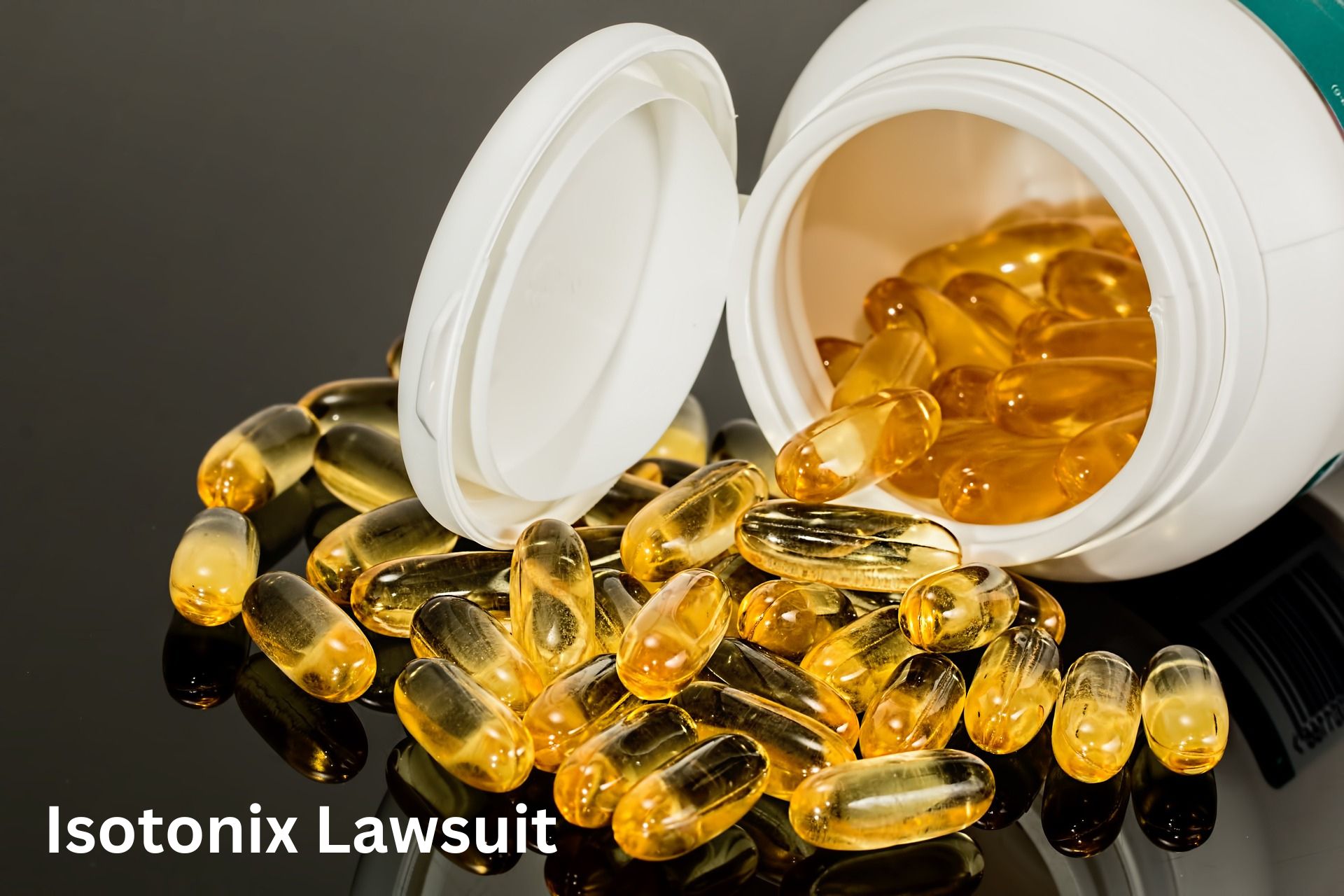The world of dietary supplements is often surrounded by both praise and controversy, with companies making bold claims about the benefits of their products. In recent years, the Isotonix lawsuit has captured the attention of the wellness community, raising questions about the truthfulness of marketing claims, product effectiveness, and the scientific evidence behind supplements. As one of the most prominent legal cases in the industry, it challenges not only the practices of Isotonix but also the integrity of the entire supplement market.
In this article, we will take a deep dive into the origins of the Isotonix lawsuit, analyze its legal proceedings, and explore the potential future implications for both the company and the broader supplement industry.
Contents
- 1 The Rise of Isotonix: A Leader in the Supplement Industry
- 2 The Isotonix Lawsuit: What Sparked the Legal Battle?
- 3 Legal Proceedings: Key Developments in the Isotonix Lawsuit
- 4 Impact on Consumers: The Fallout of the Isotonix Lawsuit
- 5 Industry-Wide Implications: What the Isotonix Lawsuit Means for the Supplement Market
- 6 Lessons Learned from the Isotonix Lawsuit
- 7 The Future of Isotonix: What Lies Ahead?
- 8 Conclusion: The Isotonix Lawsuit and Its Impact on the Supplement Industry
The Rise of Isotonix: A Leader in the Supplement Industry
Before delving into the lawsuit itself, it’s crucial to understand the background of Isotonix. Known for its innovative delivery system, Isotonix products have long claimed to offer superior nutrient absorption compared to traditional supplements. By providing isotonic solutions, the company argues that its products allow nutrients to be absorbed into the bloodstream faster and more efficiently.
This unique selling point (USP) helped Isotonix carve out a niche in the competitive supplement industry, rapidly gaining a loyal customer base. However, as with many companies that grow quickly, questions eventually arose about whether the claims behind their product’s effectiveness were backed by solid scientific evidence.
The Isotonix Lawsuit: What Sparked the Legal Battle?
The crux of the Isotonix lawsuit revolves around allegations that the company, a subsidiary of Market America, misled consumers by making unsubstantiated claims about the benefits of their products. Filed by a group of dissatisfied customers, the lawsuit accuses Isotonix of falsely advertising their supplements as being more effective than competitors, despite a lack of supporting scientific data.
The plaintiffs argue that the company’s marketing materials overstated the advantages of their isotonic delivery system, leading customers to believe they were purchasing superior products. The lawsuit seeks to hold Isotonix accountable for these alleged false claims, calling for increased transparency and more stringent regulatory oversight within the supplement industry.
Legal Proceedings: Key Developments in the Isotonix Lawsuit
As the Isotonix lawsuit moved through the courts, both sides presented their arguments in a bid to win the case. The plaintiffs claimed that Isotonix had engaged in deceptive marketing, exaggerating the benefits of their products and misleading consumers into paying a premium for what was essentially a standard supplement.
On the other hand, Isotonix defended its position by citing customer testimonials and scientific research that, according to the company, supported their claims. They maintained that their isotonic solution technology was grounded in science and that any dissatisfaction from customers could be attributed to individual differences in how supplements work for each person.
One of the key issues debated in court was the validity of the research used by Isotonix to support their marketing claims. The plaintiffs argued that much of the science cited by the company was either outdated or inconclusive, while the defense countered that the research was credible and widely accepted within the scientific community.
Impact on Consumers: The Fallout of the Isotonix Lawsuit
For consumers, the Isotonix lawsuit has created a significant amount of uncertainty surrounding the brand and its products. Many long-time users began to question whether the supplements they had been taking were as effective as advertised. Some customers even expressed concerns about the safety of Isotonix products, wondering if there were any potential side effects that had not been disclosed.
This lawsuit has also sparked a broader conversation about the need for transparency in the supplement industry. As more consumers become aware of the lack of regulation surrounding dietary supplements, there is increasing demand for companies to provide clear and evidence-based information about their products.
The Isotonix lawsuit serves as a reminder that consumers should always exercise caution when purchasing supplements and should do their own research to ensure that the products they use are safe and effective.
Industry-Wide Implications: What the Isotonix Lawsuit Means for the Supplement Market
While the Isotonix lawsuit primarily affects the company itself, its ramifications extend far beyond a single business. The case has raised important questions about the legitimacy of claims made by other supplement companies as well. If Isotonix is found guilty of making false claims, it could set a legal precedent for future lawsuits against other supplement manufacturers.
This could result in stricter regulations for the supplement industry, with companies being required to provide more scientific evidence to back up their marketing claims. In addition, it may lead to a shift in consumer behavior, as people become more skeptical of the claims made by supplement companies and start demanding more transparency and accountability.
At the same time, the Isotonix lawsuit has highlighted the importance of regulatory bodies such as the FDA in overseeing the supplement market. Currently, dietary supplements are not as closely regulated as pharmaceuticals, which has allowed many companies to make bold claims without providing sufficient evidence. This case may serve as a wake-up call for regulators to take a more active role in ensuring that consumers are protected from false advertising.
Lessons Learned from the Isotonix Lawsuit
The Isotonix lawsuit offers several key lessons for both consumers and companies in the supplement industry:
- Transparency is Essential: Companies must be transparent about the ingredients in their products and provide clear, evidence-based information about their benefits.
- Scientific Evidence Matters: In an industry where false claims are all too common, companies must back up their marketing with rigorous scientific research.
- Consumers Should Be Informed: Consumers should take the time to research supplements before purchasing them, looking for third-party reviews and independent studies to verify product claims.
- Legal Accountability: The lawsuit serves as a reminder that companies can be held legally accountable for false advertising, and that consumers have the right to take action if they believe they have been misled.
The Future of Isotonix: What Lies Ahead?
As the Isotonix lawsuit continues to unfold, the company faces several challenges in rebuilding its reputation and maintaining consumer trust. While the outcome of the lawsuit is still uncertain, it is clear that the case has already had a significant impact on both the company and the supplement industry as a whole.
In the wake of the lawsuit, Isotonix may need to reassess its marketing strategies and place a greater emphasis on transparency and scientific backing. This could involve conducting independent studies to verify the effectiveness of their products and providing clearer information to consumers about the benefits and limitations of their supplements.
Additionally, the supplement industry as a whole may need to adapt to a more regulated environment, with companies being required to meet higher standards of accountability and evidence. This could lead to a shift in how supplements are marketed and sold, with consumers demanding more trustworthy and reliable products.
Conclusion: The Isotonix Lawsuit and Its Impact on the Supplement Industry
The Isotonix lawsuit has undoubtedly shaken the supplement industry, raising important questions about product transparency, marketing ethics, and consumer protection. As the case continues to play out, it may set a precedent for future legal battles and drive regulatory changes that will affect the entire market.
For consumers, the lawsuit serves as a reminder to always be cautious when purchasing supplements and to seek out products that are backed by credible scientific evidence. For companies, it underscores the importance of truthful advertising and the need to prioritize consumer safety over profits.
In the end, the Isotonix lawsuit could be a turning point for the supplement industry, leading to a more transparent, ethical, and consumer-focused market that better serves the needs of those seeking to improve their health.










